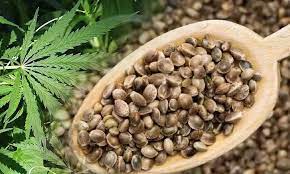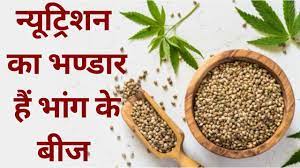Bhang Ke Beej/Hemp Seeds For Health-2023
Bhang Ke Beej/Hemp Seeds For Health
The adaptability and nutritional advantages of Bhang Ke Beej/Hemp Seeds For Health, are produced from the Cannabis sativa plant, have made them more well-liked in recent years.
Hemp has very little THC (tetrahydrocannabinol), the Intoxicating ingredient, unlike its close relative marijuana, which makes it safe to eat. Let’s examine the many facets of hemp seeds, such as their provenance, methods of production, nutritional value, applications, and possible downsides.

Follow Our Digiknowledge.co.in Page for Latest update about Bikes, Cars, Sports, , Life style and many more.
Origin and Development: Hemp has been grown for thousands of years in a number of different parts of the world. It is a resilient plant that can survive in a variety of conditions, making it environment-adaptable. Hemp is widely grown in nations like China, Canada, and the EU, where laws allow for industrial hemp production.
Climate require for Hemp Seeds
Hemp is well-known for its adaptability and capacity to flourish in a variety of climates. From colder northern areas to warmer southern ones, it can tolerate a wide range of temperatures. Hemp is a crop that may be grown sustainably in a variety of climates because it usually needs well-drained soil and can withstand some drought.
Nutritional Value of Hemp Seeds:
Hemp seeds contain an abundance of vital fatty acids, proteins, vitamins, and minerals in a well-balanced composition. They are abundant in fatty acids, particularly omega-3 and omega-6, which are essential for heart health.

Hemp seeds also contain all of the essential amino acids, making them a great plant-based protein source.
Benefits of Hemp Seeds according to Ayurveda:
Hemp seeds are regarded as a cooling food in Ayurveda, which helps balance the body’s excess heat. Include them in your diet to soothe agitated doshas, as they are thought to have a relaxing impact on the psyche.
How to Eat Hemp Seeds:
Hemp seeds can be added to a variety of meals due to their mild, nutty flavor. They go well with yoghurt and salads, as well as smoothies. You can sprinkle hemp seed oil over cooked meals or use it in salad dressings. Another crunchy snack option is roasted hemp seeds.
Hemp Seed Juice:
Although it’s not as popular as other drinks, hemp seed juice can be made by blending hemp seeds with water and then filtering the resultant combination. You can drink this juice by itself or mix it with other fruits and vegetables for a tasty and nutritious combination.

The Top 10 Advantages of Hemp Seeds:
Packed with Nutrients: Protein, fibre, vitamins, and minerals are just a few of the important nutrients that hemp seeds contain.
Heart Health: By lowering inflammation and enhancing blood circulation, the omega-3 fatty acids in hemp seeds support cardiovascular health.
Whole Protein Source: Hemp seeds are a great choice for vegans and vegetarians as they offer a full protein source.
Skin Health: By lowering inflammation and encouraging skin regeneration, the fatty acids and antioxidants in hemp seeds may help maintain healthy skin.
Digestive Health: Hemp seeds’ high fibre content facilitates digestion and guards against constipation.
Weight management: The fibre and protein in hemp seeds can help create a feeling of fullness, which may help with weight management.
Healthy Hormones: Gamma-Linolenic Acid (GLA) found in hemp seeds has the potential to balance hormones and lessen premenstrual syndrome symptoms (PMS).
Joint Health: People with arthritis and joint pain may benefit from hemp seeds’ anti-inflammatory qualities.
Hemp seeds are a good source of vitamins and minerals that help to boost the immune system as a whole.
Better Mood: Hemp seeds’ omega-3 fatty acids have been connected to mental health and may help with mood and cognitive performance.
Uses for Women and Children:
Hemp seeds may regulate Hormones, women may find them especially helpful during menstruation. Hemp seeds can be added to meals to provide children an extra dose of vital nutrients or introduced into their diet as a nutrient-dense snack.
Constipation and Cholesterol: By attaching to cholesterol molecules and facilitating their removal, hemp seeds’ high fibre content can help reduce cholesterol levels. The fibre also helps to maintain regular bowel motions, which helps to avoid constipation.
In conclusion, hemp seeds are a nutritional powerhouse with a plethora of health advantages. Hemp seeds can be a beneficial addition to a balanced diet, supporting both heart health and the immune system.
But before making any dietary changes, it’s important to be aware of particular sensitivities and get advice from a healthcare provider. Hemp seeds can be a delightful and healthy method to improve general health when added to regular meals.
Disadvantages of Hemp Seeds:
Allergic Reactions: Blood-Thinning Effects: Digestive Issues: THC Content (Trace Amounts): Caloric Density: Interactions with Medications: Impact on Omega-6 to Omega-3 Ratio: Not Recommended for Pregnant Women: Potential Contaminants: Digestive Enzyme Inhibitors:





I’m glad to hear that the article was helpful! What specific topic are you interested in? I can suggest more related content based on your interests.
I’m glad to hear that the article was helpful! What specific topic are you interested in? I can suggest more related content based on your interests.